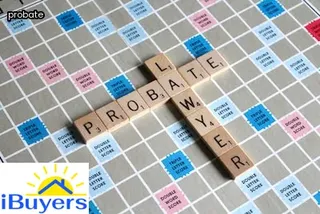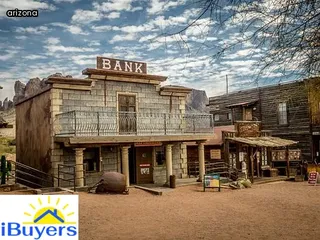The probate process in Arizona is a legal process that takes place when a deceased person's estate needs to be settled. It involves the distribution of assets to designated beneficiaries or heirs, and creditors may also be paid in the process.
The timeline for settling an estate through probate can vary, depending on the complexity of the situation and other factors such as wills, trusts, and other legal documents. In most cases, it typically takes around nine months from start to finish.
However, if there are disagreements among beneficiaries or complications with the estate’s assets, it could take much longer for probate to be concluded. During this time, an appointed personal representative must adhere to specific rules and regulations set out by the state of Arizona.
They must also provide notice to all involved parties as well as file certain documents with the court throughout the process. The personal representative has a fiduciary duty to act in good faith when managing the deceased’s estate and they may need to hire professionals such as attorneys or accountants depending on the complexity of the situation.
All decisions made during probate must be approved by a judge before they can be finalized.

Establishing a deceased person's estate in Arizona involves understanding the probate timeline for settling an estate. This process is important as it ensures that all debts and taxes of the deceased are paid off and that their assets, such as real estate, are distributed to the rightful heirs.
The steps to administer an estate in Arizona begin with filing a Petition for Probate with the county court in which the deceased resided. After this, there will be a period of notifying creditors and other interested parties before a hearing is held where the court will determine whether or not to grant authority to the executor of the estate.
Following this, asset collection and inventory begins, which includes liquidating any real property for distribution among beneficiaries. Lastly, once all debts have been paid off and all assets are distributed appropriately, the final accounting must be submitted to the court for approval before closure of the estate can occur.
Throughout this process, it is important to keep records of all proceedings and communications with those involved in order to ensure a smooth transition from one generation's ownership of property to another's.
In Arizona, there are three distinct types of probate proceedings; formal administration, independent administration, and summary administration. Formal administration is the most complex of the three and requires the executor to obtain a court order to open the estate before they can administer it.
On the other hand, an independent administration is set up when there is a will in place and requires less court involvement. Finally, summary administrations are used when estates are small and don’t require court action or supervision.
This type of probate requires fewer steps than formal or independent administrations. All three types of proceedings will involve filing an inventory with the court which includes all assets owned by the deceased person at the time of death.
The executor must then identify any debts or taxes that need to be paid out of those assets before distribution can be made to heirs according to the terms set forth in the will or as dictated by state law if no will exists. Lastly, all activities throughout each type of probate proceeding must be carefully documented for review by both parties involved and upon approval by a judge if applicable.

When dealing with the probate of an estate in Arizona, it is important to understand the difference between testate and intestate. Testate means that the decedent had a valid will at the time of death, while intestate indicates that there was no valid will. In either case, the probate process for settling an estate in Arizona can be lengthy and complicated.
When dealing with a testate estate, there must be a petition filed with the court to open probate as well as to appoint an executor or personal representative to oversee the process. The court then reviews all documents that were part of the will and any beneficiary designations made by the deceased. This can include property deeds, bank accounts, and other assets that were part of the estate.
During this process, creditors are contacted for unpaid debts and taxes are paid before distributing any remaining assets to heirs according to state law. Intestate is similar but without a valid will, distribution of assets is based on specific rules established by Arizona state laws regarding inheritance rights and succession. This includes determining who qualifies as an heir according to legal definitions as well as identifying which property should go where within those boundaries.
Both testate and intestate processes are time consuming and require numerous forms including tax returns, appraisals, notifications to creditors, payments to beneficiaries, etc., so it is important to have legal guidance throughout this process when dealing with Arizona real estate estates.
In Arizona, understanding the probate timeline for settling an estate is important when determining if probate is necessary. Probate is a legal process that ensures a deceased individual's estate is distributed according to their will or state law.
To determine if probate is required in Arizona, first consider the value of the estate being settled. If it exceeds a certain amount, then probate may be necessary.
Additionally, if there are any disputes among heirs regarding the distribution of assets, then probate may also be necessary to resolve them. Furthermore, some types of assets such as life insurance policies and retirement accounts may require a court to approve the transfer of ownership before they can be distributed.
Lastly, if the decedent had any real estate holdings in Arizona, these too must go through the probate process before they can be transferred to new owners or beneficiaries. Knowing these factors and understanding the timeline for settling an estate through probate in Arizona can help ensure that all matters are handled properly and efficiently.

In Arizona, probate is a legal process that can be lengthy and complex. Fortunately, there are shortcuts available that can help speed up the timeline for settling an estate.
One common shortcut is to use an Affidavit of Heirship if all the heirs agree on who is entitled to receive assets from the deceased person's estate. This avoids having to go through the traditional court process and can significantly reduce timeline.
Another way to expedite settlement of an estate is to use Small Estate Affidavits when the total value of all assets in the estate does not exceed a certain amount set by state law. In addition, some counties in Arizona have simplified procedures for when there are no disputes among the heirs as to who should receive which asset.
By taking advantage of these shortcuts, it may be possible to settle an Arizona real estate estate much more quickly than if going through the full probate process.
In Arizona, when an estate is being settled, the executor of the estate is entitled to compensation for their services. This compensation can be a fixed amount or a percentage of the gross value of the estate and is determined by the will or trust document.
The court may also approve additional compensation if it deems necessary. In general, executors are entitled to reimbursement for out-of-pocket expenses such as court costs, legal fees and other administrative expenses.
If there are multiple executors, they may agree on how to divide the compensation among themselves in accord with state regulations. It is important to note that if the executor has provided substantial service to the estate outside of their duties, they are eligible for additional compensation from the court.

In Arizona, the probate timeline for settling an estate can vary depending on the complexity of the situation. Generally, it takes about four to six months from start to finish.
During this time, the court will appoint a personal representative to manage and administer the estate, gather all relevant documents, communicate with creditors and beneficiaries, file tax returns and pay any outstanding debts. Additionally, it is also necessary to identify and inventory all assets belonging to the estate.
This process is known as probating a will and may take several weeks or months depending on how long it takes to properly document each asset. After that is complete, a notice of administration must be sent out to all interested parties within 14 days of filing.
The personal representative must then submit an inventory of assets and file any necessary paperwork with the court. If there are no objections or disputes brought against the petition then a hearing will be held whereupon the judge can grant permission for distribution of assets according to established state laws.
Finally, after all assets have been distributed in accordance with applicable regulations then the estate can be considered settled and closed.
In Arizona, probate is required if the estate being settled is worth more than $75,000. If the deceased person had a will in place, then the process is typically shorter and simpler than if there was no will.
Probate proceedings can take anywhere from six months to two years or longer depending on the complexity of the estate and how quickly paperwork is processed. In Arizona, all estates must go through a probate court regardless of whether or not a will exists.
The process involves an executor appointed by the court to collect all assets of the decedent and distribute them according to state law or according to any valid will that may have been written. Depending on the size of the estate, debts may need to be paid off before distributions can be made to beneficiaries.
The duration of probate in Arizona depends on numerous factors including filing costs, court fees, complications with creditors, and legal issues that might arise during this period.

In Arizona, understanding the Probate timeline is important when settling an estate. One way to avoid having an estate go through probate is to establish a living trust.
This type of trust allows you to transfer ownership of your property while you are still alive instead of going through the court system after death. Other options include gifting assets during life or adding joint owners on certain accounts and deeds.
Beneficiary designations on retirement accounts, insurance policies, and other financial instruments can also be used to avoid probate proceedings. Additionally, it is possible to write a will in Arizona that directs how assets will be distributed after death without going through probate.
Finally, real estate held in tenancy by the entirety provides protection from creditors and avoids probate because both parties must be alive for title to pass at death. Understanding these strategies can help Arizona residents plan ahead and ensure their wishes are followed with regard to their real estate assets after death.
In Arizona, the timeline for settling an estate can vary greatly. Generally, it takes at least two years to fully settle an estate if it is unopposed and uncontested.
If there are heirs contesting the will, the process can take much longer. This is because the court must appoint a personal representative to oversee the probate proceedings and create a list of assets and liabilities associated with the estate.
The representative also has to notify all creditors of the death as well as submit any required tax returns and pay any taxes due. Once these steps have been completed, they must be approved by the court before any distributions can be made to beneficiaries.
Depending on the complexity of the estate and whether or not there are objections or disputes, it could take anywhere from two years to 10 years or more before an Arizona real estate estate is finally settled.

In Arizona, an executor typically has nine (9) months to settle an estate following the death of a loved one. The probate process can take several weeks or even months to complete, depending on the size and complexity of the estate.
It is important for executors to understand that this timeline can be affected by court delays, creditor claims, and other factors. In general, however, it is expected that executors will complete the settlement within nine (9) months of the decedent's passing.
An extension beyond this period may be granted in certain cases if all interested parties agree. Although it is possible for an estate to be settled quicker than nine (9) months, it is recommended that executors plan accordingly in order to ensure timely completion of their duties.
Settling an estate in Arizona requires knowledge of the probate process and timeline. Generally, the probate process begins with filing a Petition for Probate in the court nearest to where the decedent resided.
After this is filed, notice must be given to all heirs and beneficiaries of the estate. Depending on whether or not there is a will, there may be additional steps needed to complete the probate process.
If there is a will, it must be filed with the court and approved by a judge before any assets can be distributed. If there is no will, then an administrator must be appointed by the court to manage and distribute assets according to state law.
From this point forward, it typically takes between 6-12 months for all debts to be paid off and all assets to be distributed among heirs of the estate. It's important to understand that each estate has unique characteristics that could affect or delay settlement timelines - so it's best to consult with an attorney who specializes in Arizona real estate law if you are involved in settling an estate in Arizona.
In Arizona, the probate timeline for settling an estate can vary depending on the size and complexity of the estate. Generally speaking, most estates take between six to nine months to settle, but this can be much longer or shorter depending on different factors.
If the deceased passed away with a valid will in place, this can expedite the process significantly as it outlines the wishes of the deceased and how their assets should be distributed. However, if there is no will or significant disagreements among family members or beneficiaries, this could cause delays during probate.
Additionally, if any creditors or taxes are owed by the estate these must be paid off before any assets can be distributed to beneficiaries. Any delays in paying off creditors could extend probate proceedings beyond nine months.
Ultimately, understanding all potential complexities and having patience throughout the process is essential for ensuring that an estate is settled efficiently and correctly.